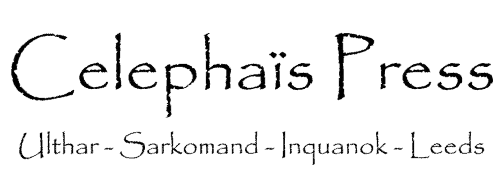Given it's been a year and a half since the last update, I'm not sure anyone's still reading this, but going over my notes on the Goëtia again, it occurred to me to check something, which has tended to reinforce my suspicions that the redactor of the Lemegeton used the 1665 "third edition" of Scot's Discovery of Witchcraft.
A brief reminder: the 1665 "third edition" interpolated nine additional chapters of magical processes at the start of Book XV, two others of which contain passages (the prayer for robing in ch. v and the prayer to the Guardian Angel in ch. vii) that are very close (word-for-word identical in places) with ritual speeches in the Lemegeton. The last of these is titled, "How to Conjure the Spirit Balkin the Master of Luridan" (Luridan being the subject of process which occupied ch. viii). The spirit is conjured, amongst other things, by "the mighty Prince Coronzon," whose name is also to be written upon a girdle worn by the magician.
Anyway, at the end of the procedure, as is customary, Balkin is licensed to depart, thusly:
Because thou hast diligently answered my demands, and been ready to come at my first call, I do here licence thee to depart unto thy proper place, without injury or danger to man or Beast; depart, I say, and be ever ready at my call, being duly exorcized and conjured by sacred Rites of Magick; I charge thee to withdraw with quiet and peace; and peace be continued betwixt me and thee, in the Name of the Father, Son and Holy Ghost. Amen.
Compare the Ars Goëtia (Sloane MS. 3825, fol. 116r):
O thou spirit N Because thou hast very dilligently answered my demands and was ready and willing to come at my first call I doe hear Licence thee to depart unto thy proper place without doeing any Injury or danger to any man or beast depart I say and be ever reddy to come at my call being duly exorcised and conjured by the sacred rites of magick, I charge thee to withdraw peaceably and quietly, and the peace of god be ever continued between me and thee, Amen.
Mathers rendered it thusly:
O Thou Spirit N., because thou hast diligently answered unto my demands, and hast been very ready and willing to come at my call, I do here licence thee to depart unto thy proper place; without causing harm or danger unto man or beast. Depart, them I say, and be thou very ready to come at my call, being duly exorcised and conjured by the sacred rites of magic. I charge thee to withdraw peaceably and quietly, and the peace of GOD be ever continued between thee and me! AMEN!
For comparison purposes, the license to depart in the Heptameron (the source for much of the verbiage in the conjurations of the Ars Goëtia) runs:
In nomine Patris, Filii, et Spiritus Sancti, ite in pace ad loca vestra: et pax fit inter nos et vos, parati sitis venire vocati.
which Turner translated thus:
In the Name of the Father, and of the Son, and of the holy Ghost, go in peace unto your places & peace be between us and you, be ye ready to come when ye are called.
The English Key of Solomon version in Sloane 3645 (fol. 6r) simply instructs the magician, "thou wilt command every one to returne peaceably into his place and say, Peace bee betweene you and mee. After this let the Conjurer say St. John's Ghospell and the 12 Articles of the Creedo, and goe out of the Circle."
The Key of Solomon version (late 16th-century) in Sloane 3847 (fol. 22v) has: "Let every one of you turne into his place peaceably, and peace be between us and you," followed by a similar instruction to to repeat "St. John's Gospell, In principio erat &c. credo in deum."
There are minor differences in phrasing between the Goëtia and Discovery texts, but much is word-for-word identical and we have seen a similar thing with the material adapted from Turner's translation of the Heptameron. It does of course remain possible that the compiler of the Lemegeton derived all three of those passages from the same manuscript or MS. tradition used by the editor of the 1665 Discovery rather from the printed text, but the dependence on Scot in other respects (i.e., the catalogue of spirits), and the fact that other considerations make 1665 the earliest possible date for the redaction of the Lemegeton, tend to make use of the 1665 Discovery the simplest explanation.

